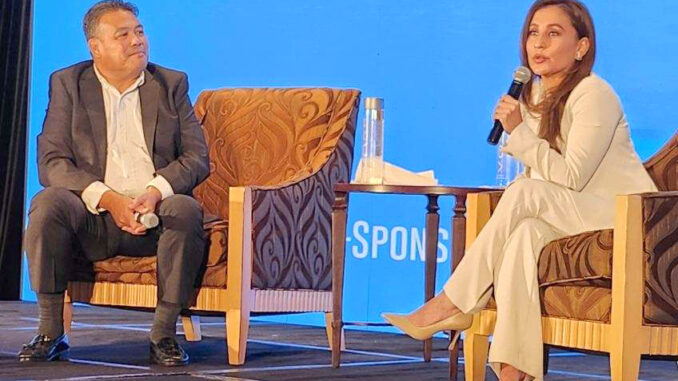
A new public outreach campaign is attracting attention from major political leaders and media throughout California. Latino Times has asked organizers and business leaders what they’re hearing from the community.
While leaders debate the future of an energy transition that bans gas-powered vehicles, appliances, and equipment, major media personalities are speaking up about the new program Levanta Tu Voz, an effort designed for policymakers to see and hear how Latino families and businesses will be affected by the new laws.
In a recent interview, the focus is on shining a light on more stories of communities bearing the burden of California’s growing inequality.
“We know why so many media outlets are weighing in—because there’s more than one point of view when it comes to energy policy in California. Latinos must raise their voices to show the diverse perspectives we bring to this debate,” said Argelia León, head of the Levanta Tu Voz program at the Western States Petroleum Association which is funding the effort.
“We too feel the urgency of fighting climate change. This is especially true in our community—but when families and businesses face costly and constraining changes, we need to hear and consider how they’re burdened,” said León. “Any law or mandate coming from Sacramento will only work if it is accessible for everyone.
Levanta Tu Voz launched in May 2023 and thousands of California Latino families and business owners have visited www.levantatuvoz.org and shared their views of how new energy laws banning gasoline and diesel will change.
“I was happy to speak with major media about Levanta Tu Voz because Latino business owners are being outright ignored in this conversation,” said Julian Cañete, President and CEO of the California Hispanic Chambers of Commerce. “I have said repeatedly that California continues to implement policies that negatively impact more than 800,000 Hispanic-owned businesses in the state. These policies hurt our businesses. We can’t afford them, and neither can our families. We need changes so that we bring back equality to policymaking.”
At issue is who best benefits from aggressive changes to improve air quality and fight climate change while many are still recovering from the pandemic’s economic damage and California’s high cost of living.
The Levanta Tu Voz program includes major radio and television advertising, and social media outreach on TikTok, YouTube, Facebook and Instagram. The effort also pays teams to attend major community events to ask for public feedback and engagement. Hundreds recently weighed in on the energy debate at a Fiesta Patrias events in East Los Angeles.
Many people say they want to be able to afford luxury electric vehicles, but the rebate programs offered by the government are being used by wealthy white Californians. New reports show those buying electric cars in California reside in the wealthiest zip codes leaving behind too many low-income, hard-working families.
As one major newspaper recently wrote: “Latinos are being left behind in the transition to electric vehicles and equipment. These are valid concerns as wealthier Californians switch to EVs at higher rates, buying Teslas and other expensive models that remain largely out of reach for most lower-income families. We should all demand policies that make that transition equitable and affordable for all Californians.”
“This effort is a result of listening. Ms. Leon, whose own life story is rooted in this industry and lessons, learned about hard work and the importance of good jobs to families and communities, to small business owners and community volunteers—we heard a consistent message: too many politicians and media shout us down while voting for energy policies that create higher costs and diminish the quality of life for Californians,” said Catherine Reheis-Boyd, President and CEO of WSPA. “We are proud to amplify these voices.”
In the end, León says this is about whether Latinos are being ignored and whether representatives from Latino communities are focused enough on costs and inequality. “Our campaign is about empowering people to speak up, raise their voices, and weigh in on these new energy laws. This includes speaking about the best progress in clean air, including a transition to electrification, which can occur equitably and with options available to all.
“If enough of us share our stories, our leaders will accept there is power in our voices and begin to make changes that work for everyone,” she said.



Be the first to comment